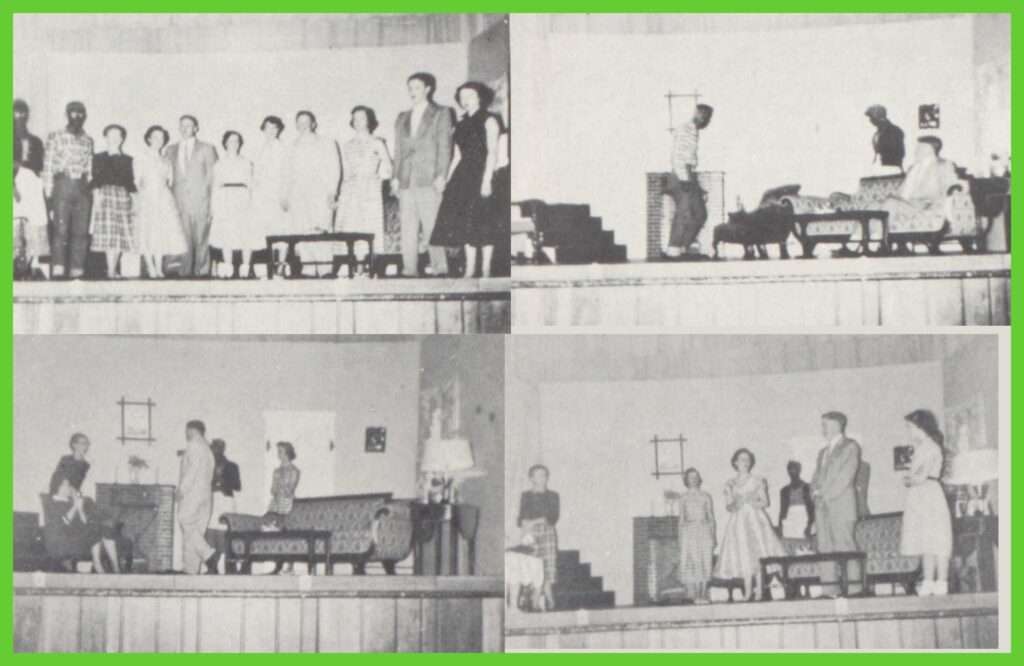
Four 1956 photographs showing the cast and several scenes from the play, “A Ready Made Family,” which was performed at the Upper Dauphin High School, Elizabethville, Dauphin County, Pennsylvania. The play had two characters who were “colored” servants. They were played by white students in “black-face.”
A synopsis of the play:
Ten years after Alice became a widow, she spent her vacation at Daytona Beach and there she met an old time school mate, Henry Turner. In a short time they became engaged. However, when her children, Marilee, Bob, and Gracie received the letter announcing the engagement, they were determine to put a stop to it. Marilee talked baby talk, Gracie acted like a spoiled child by tripping Henry and putting pins in his chair, and Bob did a very good job of going into convulsions. When Henry’s children, Sammie and Doris heard about the engagement, they too tried to break it up. Doris acted very nervous by constantly tapping her feet, twisting her hair, and talking about her operation. Sammie did his part by suddenly becoming a Kleptomaniac. With the help of Begonia and Nicodemus, the colored servants, and Miss Lydia, Alice’s step-sister, the children made it very bad for Alice and Henry. Finally after a series of unforeseen events they were happily married with the well wishes of the family.
Cast Members:
- James Young – Nicodemus
- Mary Stoneroad – Begonia
- Naomi Hain – Miss Lydia
- Charmasielle Sultzbaugh – Alice
- Edward Charrot – Henry Turner
- Dale Umholtz – Bob
- Darlee Micka – Marilee
- Carolyn Klinger – Gracie
- Jean Buffington – Doris
- Lynn Henninger – Sammy
This post is part of a series in which news articles, photographs and other “memorabilia” are presented to show how “black-face” was infused into the culture of the Lykens Valley area. Readers are invited to submit photos and recollections on how long this offensive “entertainment” lasted and what locals thought of it as part of the culture of the area.
Typically, white men and women blackened their faces, and performed while emphasizing negative stereotypical behavior that they attributed to African Americans. The primary purpose was to get laughs. The practice was supported by prominent people in the community and often found its way into school plays such as shown here.
___________________________________
From the 1956 yearbook, La Memoria, of the Upper Dauphin High School, Elizabethville, Dauphin County, Pennsylvania. A complete digital copy of this yearbook is available on Ancestry.com.
Corrections and additional information should be added as comments to this post.